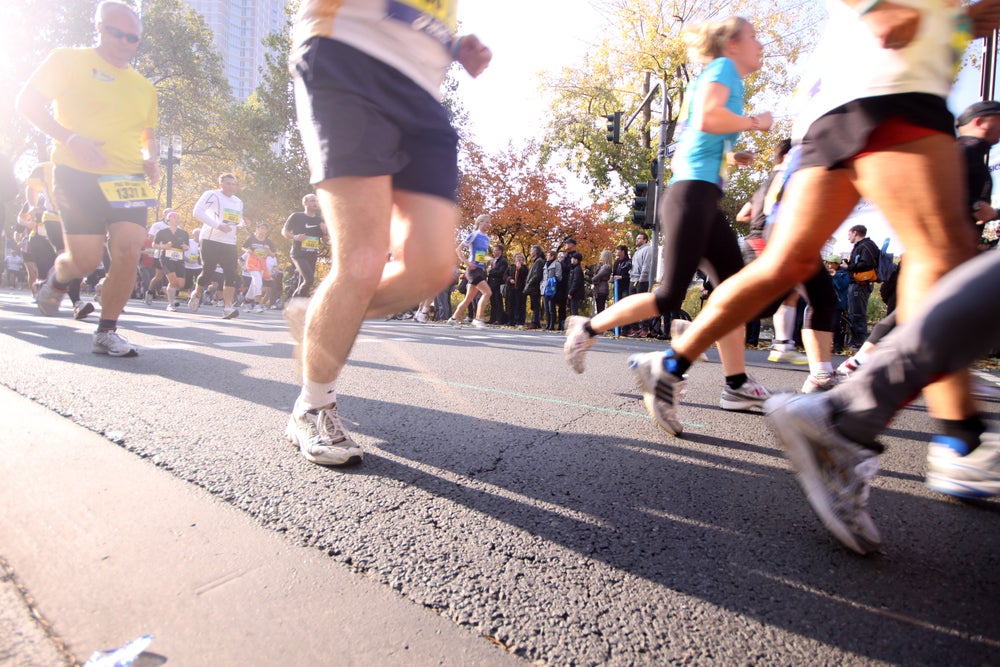Aging Up: Addressing Motivation And Intensity For Older Triathletes

Photo: <a href="http://www.shutterstock.com/gallery-4961p1.html?cr=00&pl=edit-00">J. Henning Buchholz</a> / <a href="http://www.shutterstock.com/?cr=00&pl=edit-00">Shutterstock.com</a>
“Aging Up” is a new column from Ian Stokell. Each month Stokell will give insights into how to tackle the sport as you continue to move up the age-group ladder. This week, he answers questions from two readers about staying motivated and adjusting volume and intensity as you get older.
Staying Motivated
Jeffrey Mitchell emailed me and commented on how hard it is to maintain motivation as he gets older and asked for advice.
Motivation is tightly linked to personal goals. If you are unmotivated, you need to start by re-examining your goals. The problem is compounded for masters athletes because as we age, personal-best times in training and in races usually become harder to obtain. So we have to look elsewhere for goals.
While your season will still most likely be divided into sections with each focused on training for, and ultimately peaking for, two or three races throughout the year, individual daily workouts are best served by focusing on performance goals and not outcome goals.
Individual workout performance goals can include everything from an emphasis on technique, to maintaining a certain average running pace over a particular distance.
Essentially, you are looking for workout goals that are fun and that you can control. Never underestimate the motivational power of fun.
Identify achievable and enjoyable season-long goals and then break down short-term daily workouts into realistic performance-oriented goals.
Adjusting Volume and Intensity
Jose Manuel Rodriguez Carrasco, a 77-year-old triathlete, asked for recommendations about how to adjust training as he gets older and whether it is simply a question of adjusting volume and intensity.
My first response is that, if Jose is doing triathlons at 77 years old, I should be asking him for some recommendations, not the other way around!
Seriously though, my view is that the older you get, the more important it is to work with a personal triathlon coach who knows you well and what your body and mind are physically capable of. One size does not fit all and the older we get the more important that sentiment becomes.
In terms of volume, as you age you do need to get rid of “junk” running mileage and get specific on your training and what is needed to reach you triathlon goals. The body is going to be less accommodating to long hours pounding away on the roads to reach unnecessary mileage goals with little verifiable training benefits.
Intensity is a different matter. Don’t be too keen to get rid of training intensity completely. It just needs to be moderated.
A number of things happen as a result of aging. These include a decline in VO2 max (the amount of oxygen a body can utilize at the height of exercise), a loss of muscle mass and bone mass, a decrease in lactate threshold, a loss of strength, a decline in fast twitch muscle fibers (which provide quick reaction time and explosive power) and a general reduction in the flexibility and elasticity of the joints and muscles.
While there is nothing you can actually do to stop VO2 max declining completely, you can slow it down, and quite a bit as it turns out. With pretty much everything else, there is plenty you can do to stop and even reverse the decline.
For the most part, the answer is a combination of high intensity workouts and resistance and strength training, whether in the gym or elsewhere. However, the more you age the more likely that you probably can’t engage in the same high intensity workouts that you did even five years before. Everything has to be in moderation and under the supervision of a coach who is both versed in coaching older masters triathletes, as well as one who is very familiar with what your body and mind are capable of.
Keep the questions and emails coming to iantriathlon@gmail.com. I’ll include as many of them as I can in future columns.